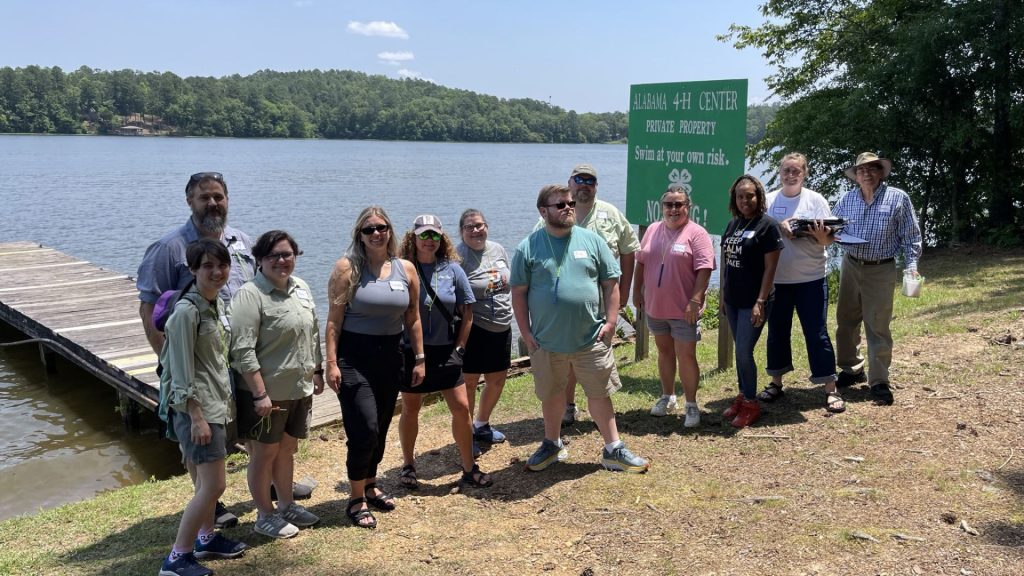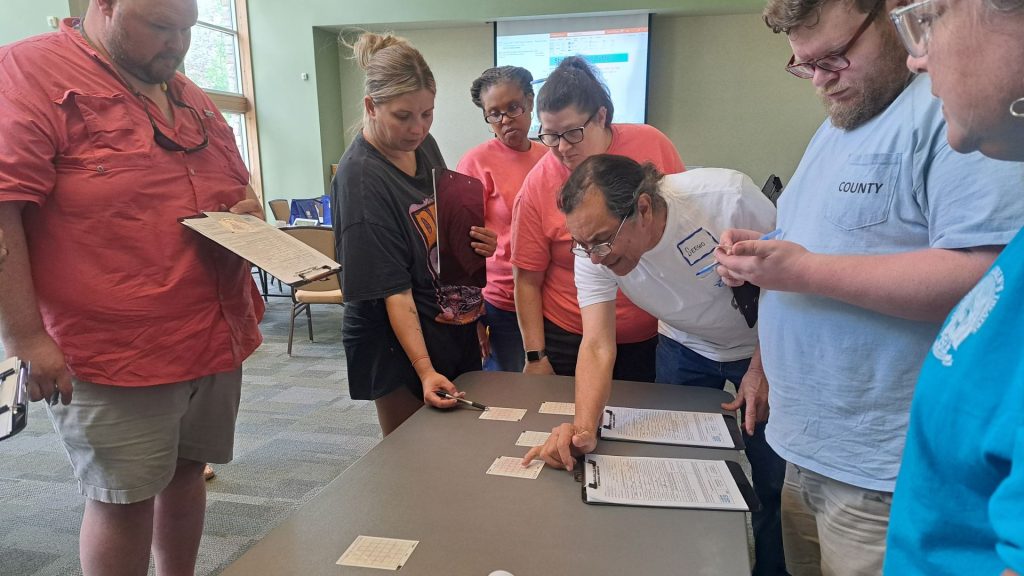On June 6-7, 2023, a new cohort of educators gathered at the Alabama 4-H Center in Columbiana to complete their certification as 4-H Alabama Water Watch (AWW) Educators who will conduct bacteriological monitoring with their students in the coming school year. This is the second cohort of educators to be part of this NOAA BWET-funded project, which started with the first cohort in 2021.

Prior to their training at the 4-H Center, educators completed online coursework and participated in a Zoom training that covered the basics of the curriculum, the AWW Program, water environment, and principles and practices of bacteriological monitoring so they would be ready to jump into hands-on activities during the training!

The Alabama 4-H Center was the perfect location for the training as it gave educators easy access to practice their monitoring techniques at Lay Lake as well as a wonderful classroom space at the Science School. We were pleased to find that the water quality conditions were good for the lake since hundreds of summer campers were kayaking and paddle boarding while we were there!

Photo Credit: Sydney Zinner
The educators came from various parts of Alabama including Mobile, Madison, Tuscaloosa, and Etowah counties. There were three educators from Ridgeland, Mississippi who will be piloting this curriculum in partnership with AWW and Mississippi Water Stewards. Educators teach high school students in subject areas including Zoology, Forensics, Earth and Space Science, Agriscience, Conservation, Biology, Marine Science, and Environmental Science.

On the last day of the workshop, we visited the Columbiana Wastewater Treatment Plant with an educational tour by Dale Lucas, the Department Head of Environmental Services for the City of Columbiana. We also got to meet Mayor Mitchell!

In the coming school year, the teachers will take their students into the field to conduct monitoring of a local waterbody at least 4 times. In addition, they will work with students to develop and implement stewardship actions that address water quality issues they have identified through their work with the project. By the end of the school year, students will complete final projects that can be in the form of a research poster, an Extension-style factsheet, oral presentation, or video. These projects will highlight the goal of their project, the research question they addressed, methodology, results, conclusions, and discussion of how water quality can be improved or protected for the local waterbody.

The overall project goal is to provide students with Meaningful Watershed Educational Experiences (MWEEs) that are: learner-centered experiences focused on investigations into local environmental issues that lead to informed decisions and stewardship actions; composed of multiple elements that include learning both outdoors and in the classroom; and designed to increase the environmental literacy of all student participants.

All students, regardless of where they live or their social or economic status, should have the opportunity to participate in and benefit from MWEEs. MWEEs are implemented through lesson content and hands-on activities, bacteriological monitoring in the field, student projects, and student-driven stewardship activities.
A third cohort of educators will be invited to participate in 2024. Get in touch with us if you are interested at awwprog@auburn.edu!
